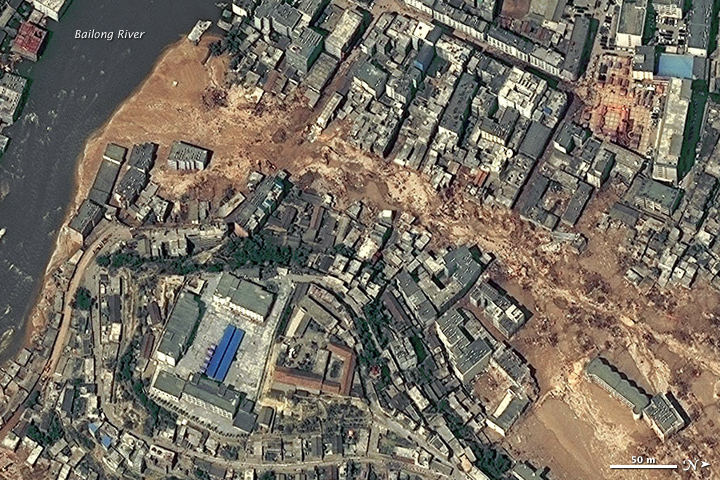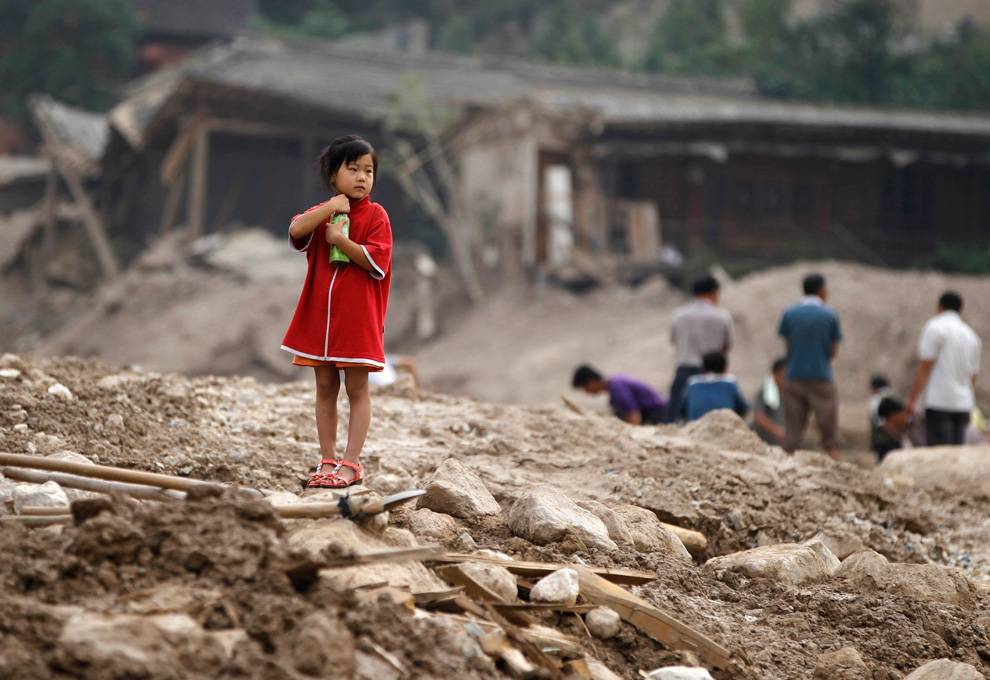
BREAKING NEWS - A massive landslide hits Zhouqu County, China
A quick introduction into the topography and of other relations to the landslide; China is extremely mountainous; weather has been experiencing torrential rains from the monsoon season. The region also experiences large and devastating earthquakes from time to time. Landslides occur because of the heavy rainfall and from the earthquakes occurring on steep slopes where the slipping soil causes landslides. The anthropogenic causes of landslides are dams, clear cutting, undercutting, and so forth.
On August 7, a huge mudslide struck Zhouqu, in Gansu western China. More than 1200 people had been declared dead and 490 were still missing. This was the worst landslide in Zhouqu since records began; possibly the worst in China for 60 years.
 |
| Landslide in Zhouqu, China |
Zhouqu mudslide were the "mountainous terrain and loss of ground cover"
and, according to the deputy director of the Department of Geological
Environment at the Ministry of Land and Resources, "a lingering drought
lasting almost 9 months in some local areas and the 2008 Sichuan
earthquake that might have loosened the mountainside and caused some
cracks are also reasons behind the devastating mudslide."
A 2006 report by Lanzhou University warned of the dangers presented by the destruction of the forests around Zhouqu for mining and agriculture, causing soil erosion and destabilizing hillsides.

"The hills have become highly unstable and easily subject to natural disaster of landslides and mudslides," the report said. "The situation is the result of deforestation, exploitative mining activities, construction of hydroelectric power plants and other development activities."
In more recent years, the construction of a highway and more than 40 hydroelectric power dams in the sharp-sided valleys has further destabilised the geology, according to Fan Xiao, a leading Chinese geologist based in Sichuan.
The area is extremely poor. Logging was banned there 12 years ago but people continued to cut down and sell trees on the mountainside to make a living.
A recent drought and the Sichuan earthquake two years ago may have weakened the rock face above the town, but our correspondent says protective measures and warning systems could have saved lives.
The government has promised to help people rebuild homes and buildings in the area but analysts are questioning if this is wise.


"The tragedy in Zhouqu is a reflection of the challenges and risks economic growth brings to poor regions," said Li Yan, climate change and energy campaigner for Greenpeace China.

The devastating landslide destroyed much of the infrastructure; villages; homes; killing and injuring a significant amount of people and animals.
This landslide could've been prevented from stabilizing the ground and by building retaining walls that won't compromise the shear plane of the land.

Families should not return to homes because there could be a lot of destruction immediately after the landslide. Once everything has been recovered and repaired, that is when it is only safe to return. Prevention programs are created to prevent a future disaster. Many recovery efforts and assistance is available from other cities and service workers for the recovery of natural disasters such as this one in Zhouqu, China.
No comments:
Post a Comment